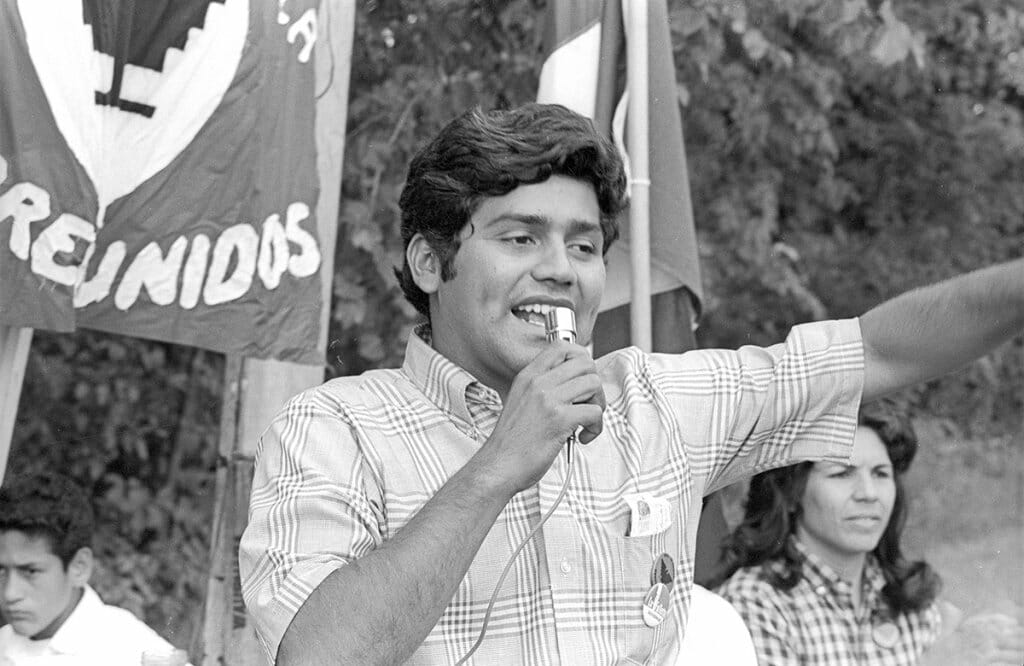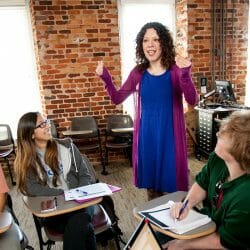Labor Rights and Wrongs
Jesús Salas MA’85 battled owners and county officials to organize fellow migrant workers.

Salas’s precarious life as a migrant worker led him to value labor rights. Wisconsin Historical Society
As a labor organizer, as a student, and as an educator, Jesús Salas MA’85 follows one principle, which he learned from Cesar Chavez: “When you start something, you stay for the duration,” Salas says. “It doesn’t matter how long the duration is.”
Throughout his career, from teenage migrant worker to UW System regent, Salas pursued goals requiring long-term effort. In the 1960s, he helped create the labor union Obreros Unidos, and after earning his master’s, he helped establish UW–Madison’s Chican@ and Latin@ Studies program. Persistence saw him through.
Salas was born in Crystal City, Texas, in a community of Chicano migrant workers. They followed an annual circuit, traveling north as the frost receded and south as it advanced again.
Throughout the 1950s, Salas went to school in the communities where his family worked, until his parents bought a café in Wautoma, Wisconsin.
The precarious life of a migrant worker led Salas to value labor rights. In the 1960s, he began to organize fellow laborers. His initial efforts were frustrating: owners fired those who joined unions, and county officials harassed organizers.
But Salas took inspiration from Chavez, who was then organizing migrant workers in California. He chose to persist.
Eventually, Salas connected with a UW–Madison professor, Elizabeth Brandeis Raushenbush MA’24, PhD’28, an economist with the Institute for Research on Poverty.
“She headed the first Poverty Institute Migrant Wage and Working Conditions Study, and she hired me and my brother to go into the camps and introduce a whole core of graduate students from UW–Madison,” Salas says.
While organizing, he completed his bachelor’s and then master’s degrees, a process that took about 20 years.
And when he was done, he took his degree in political science and began teaching at Milwaukee Area Technical College, where he helped establish a bilingual teaching program.
Governor Jim Doyle’67 appointed Salas to the UW System Board of Regents in 2003, and he served until 2007. He worked on the physical planning committee, advocating for infrastructure improvements and for continued growth in services for the Latino community.
In retirement, Salas continues to travel to Crystal City, Texas, and to advocate for migrant workers’ rights.
“It’s been a long haul,” he says, “But we stay with it.”
Published in the Fall 2022 issue



Comments
No comments posted yet.